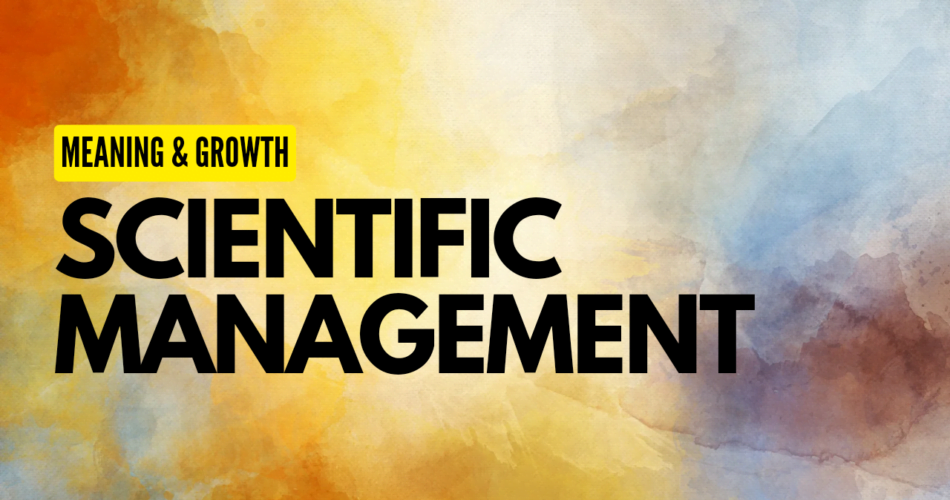Growth of Scientific Management
The need to study management, especially “Scientific Management,” arose with the industrial revolution in Europe (more specifically, England). The Industrial Revolution and the systematic Study of Management resulted from a remarkable confluence of ideas and events.
As the Industrial Revolution progressed, as the skills of controlling large numbers of people and machines within an overall process developed, the manager started paying increasing attention to developing the most efficient methods of production.
The job-task and productivity-oriented scientific management theories were the first systematically organized expression of Management Theory.
However, Taylor was not the originator of the scientific management theory. Before him, Charles Babbage, Henry R. Towne, F. Halsey, and Henry Metcalf had developed and used scientific management methods and techniques.
Meaning of Scientific Management
Though the term scientific management was first coined by Louis Brandies, it was Taylor who used the term to give a complete and systematic explanation of scientific methods and techniques for promoting organizational efficiency and economy. Hence he came to be known as the “Father of Scientific Management.”
The term implies the application of science to the management of a business concern. It aims to replacement of traditional techniques with scientific techniques. It is also known as “Taylorism.”
The Scientific Management School
Taylor pointed out: “Management is a true science, resting upon clearly fixed laws, rules, and principles, as a Foundation.” He argued that management comprised several principles that commanded applicability in all organizations.
“The same principles can be applied with equal force to all social activities: to the management of our homes; the management of our farms; the management of the business of our tradesman, large and small; of our churches, our philanthropic institutions, our universities and our governmental departments.” (Avasthi & Maheshwari 1962)
Taylor’s overall goal is higher Industrial efficiency in the form of higher productivity or lower unit cost. The objective, assumptions, and techniques of scientific management distinguish it from other approaches.
Taylor made two assumptions, namely –
- The application of the methods of science to organisational problems leads to higher Industrial efficiency; observation, measurement, and experimental comparison are these methods; and
- The incentive of higher wages will promote the mutuality of interest between workers and managers, which, in turn, will lead to higher productivity.
Several specific objectives and techniques are embodied in scientific management.
| S. No. | Objectives | Techniques |
| 1. | Standardization of working conditions | The best lighting, temperature and humidity for achieving productivity. |
| 2. | Standardization of working method | Motion Study – It is the observation of all the motions that comprises a particular job and the determination of the best set of motions. It makes use of motion picture cameras. In simple terms it determines the best procedure for doing a job. |
| 3. | Planning of large daily task | Time Study – It determines the time content of a job. In simple terms how much time does a job require to perform. |
| 4. | Differential Piece-rate Plan | Encourage high performer to stay and low performer to leave. |
- Standardization of working conditions – The best lighting, temperature and humidity for achieving productivity.
- Standardization of working method – Motion Study – It is the observation of all the motions that comprises a particular job and the determination of the best set of motions. It makes use of motion picture cameras. In simple terms it determines the best procedure for doing a job.
- Planning of large daily task – Time Study – It determines the time content of a job. In simple terms how much time does a job require to perform.
- Differential Piece-rate Plan – Encourage high performer to stay and low performer to leave.
Also find the similar articles on Scientific Management

